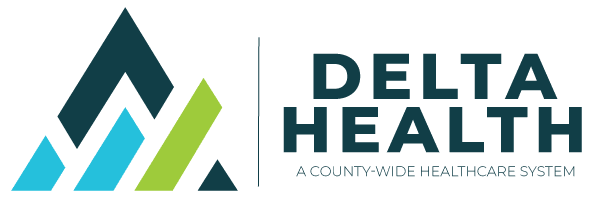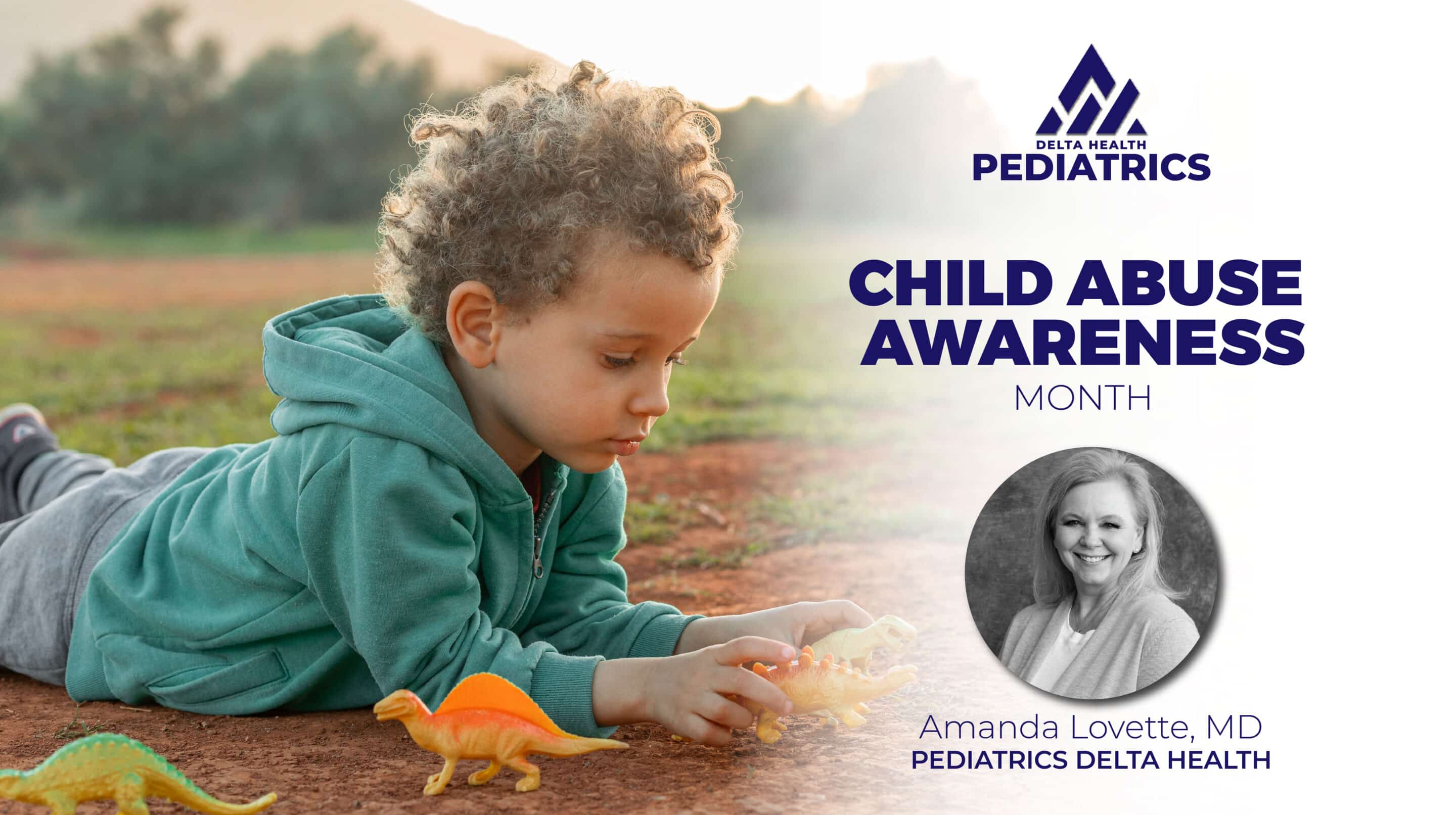Amanda Lovette, MD, Delta Health Pediatrics
Welcome to April – winter is almost over and long, warmer days are ahead. April is a time for celebrations like Easter and spring flowers and is also a time to recognize and learn about different issues in our lives, like stress, alcohol awareness, and child abuse.
Child abuse is especially important in my line of work. Statistics state that, in my medical office, out of every ten children I see, one will have experienced maltreatment or abuse. This maltreatment can take the form of physical, sexual, or emotional abuse, or neglect. Sometimes it is obvious and sometimes it isn’t. Colorado appears to have rising rates of child abuse as well, so this issue is only becoming more urgent.
What does child abuse look like? Contrary to many beliefs, a child experiencing abuse may have no physically visible signs, because they can be hidden by clothing and hair, but also because there are different types of abuse which do not leave physical marks. Children experiencing physical abuse may have hidden or visible scars or wounds, such as bruising, grab marks, bite marks, cigarette burns, or bruise impressions from hands or belts among other things. Any bruise or wound that cannot be adequately explained by the child or parent could be a sign of abuse.
Children can also experience emotional abuse, which often presents in a child as withdrawal from friends and social situations, destructive or aggressive behavior, or fear of going home to a parent. A child who has been sexually abused may have an unexplained sexually transmitted disease, injury to the genital area, inappropriate knowledge of sexual behaviors or verbalizations, or may sexually victimize other children.
A child who is experiencing maltreatment or neglect may show obvious malnourishment and might even beg for or steal food, might have unmet medical needs like glasses or dental care, and might show poor personal hygiene like being unwashed or with torn or dirty clothes. These children also may be left alone unsupervised and be frequently late or absent from school.
As health care providers, we are obligated legally to report any concern for abuse. It is the investigator’s job to determine if abuse has happened; it is ours to report the possibility. But if you aren’t in the health care field, what can and should you do if you are concerned about abuse?
You can encourage the child to tell you what has happened, though it’s unhelpful to force the child to disclose this information. You can remind him that he isn’t responsible for the abuse. You can keep him safe and comfortable while you get further information about how to proceed. The number you can call or text to get that assistance and information is the Childhelp National Child Abuse Hotline at 1-800-422-4453, where you can ask counselors for advice, resources, and support, and to talk through difficult situations. You can report suspected child abuse in Colorado by calling CO4Kids at 1-800-501-2949. The report is kept confidential; your identity is never disclosed.
It is everyone’s job to keep our children safe and healthy.
For more information, contact Delta Health Pediatrics at 970.546.4000 or visit deltahealthco.org/delta-health-pediatrics/. Delta Health Pediatrics has walk-in appointments available Tuesdays, Wednesdays and Fridays from 8:00 a.m. to 5:00 p.m. as well as same-day appointments available Monday through Friday. Please call the clinic to schedule an appointment.
More tips, articles and videos from Dr. Lovette can also be found online by joining the Healthy Kids Western Slope Facebook Group at facebook.com/groups/healthykidswesternslope/.


